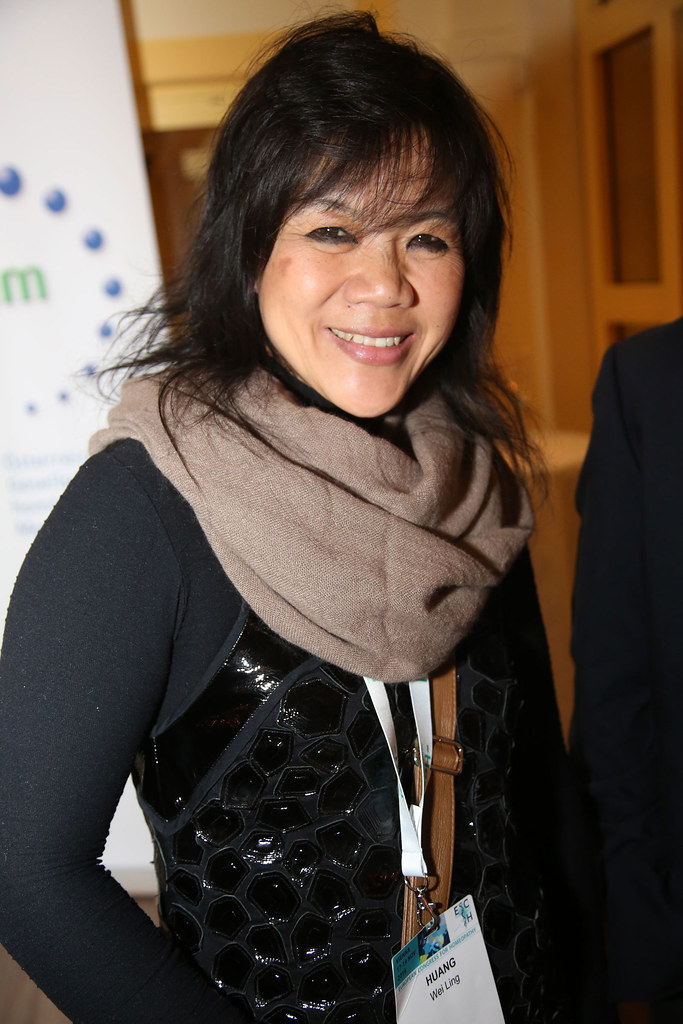Theme: Exploring the new horizons to cure Hypertension & Cardiac diseases
Renowned Speakers
10th International Conference on Hypertension and
Conference Series invites all the participants from all over the world to attend "10th International Conference on Hypertension and Healthcare" scheduled on during October 24-25, 2022 Dubai, UAE. Which is mainly focuses on the “Exploring the new horizons to cure Hypertension & Cardiac diseases”.This includes prompt keynote presentations, symposia, Poster presentations, speaker talks and Exhibition and workshops.
ME Conferences through its Open Access action is committed to build a real and reliable improvement to the scientific community. Conference Series Ltd organize 600+ Conferences once in a year across Europe, USA & Asia with support from a thousand additional scientific societies and Publishes 400+ Open access journals that contains over 30000 dominant personalities, reputed scientists as editorial board members.
Why to Attend?
Encounter the target market with members from across the world, committed to learn about hypertension treatment and health management. The meeting covers a large area of ability in the field not only of hypertension but also of other cardiovascular and metabolic disorders related to hypertension. Conduct presentations, distribute and update knowledge about the present situation of hypertension treatment and receive name appreciation at this event. World dominent speakers, latest treatment techniques, most recent researches and the advanced updates in Hypertension Management are the principal features of this conference.
Target Audience:
- Doctors
- Healthcare professionals
- Vascular surgeons
- Endocrinologists
- Cardiologists
- Laboratory members
- Directors of Hypertension or related Programs or Associations
- Writers
- Scientists and Researchers organizers
- Medical Colleges
- Hospitals and Health Services
- Heads, Deans and Professors of Hypertension or Cardiology departments
- Founders and Employees of the related companies
- Pharmaceutical companies
- Clinical investigators
- Training institution
Track 1: Hypertension
Hypertension, often known as high blood pressure, is a long-term medical disorder characterized by chronically excessive blood pressure in the arteries. The majority of the time, high blood pressure does not create any symptoms. High blood pressure for an extended period of time, on the other hand, is a substantial risk factor for stroke, coronary artery disease, heart failure, atrial fibrillation, peripheral arterial disease, vision loss, and chronic kidney disease.
- Fitness & Exercise.
- Heart Disease.
- Metabolic Syndrome.
Track 2: Pediatric Hypertension
Elevated blood pressure is defined as blood pressure in the 90th percentile or higher for age, height, and sex in children younger than 13 years, while hypertension is defined as blood pressure in the 95th percentile or above.
- stroke statistics
- abnormal blood pressure
- obesity epidemic
Track 3: Pulmonary Hypertension
Pulmonary hypertension is a type of high blood pressure that affects the arteries in your lungs and the right side of your heart. In one form of pulmonary hypertension, tiny arteries in your lungs, called pulmonary arterioles, and capillaries become narrowed, blocked or destroyed. In one type of pulmonary hypertension, This makes it harder for blood to move through the lungs and consequently raises the weight inside lung dividers. As the weight assembles, the heart's lower right chamber works more diligently to siphon blood through the lungs, in the long run causing the heart muscle fall flat. A few types of pulmonary hypertension are serious conditions that become dynamically more awful and are once in a while deadly.
Track 4: Gestational Hypertension
Gestational Hypertension is also known as pregnancy induced hyper tension, is a group of high blood pressure disorders.. We can find Gestational Hypertension by each prenatal checkup; your healthcare provider will check your blood pressure and urine levels. Your doctor may also check your kidney and blood-clotting functions, order blood tests, perform an ultrasound scan to check your baby’s growth, and use a Doppler Scan to measure the efficiency of blood flow to the placenta. High Blood Pressure (Hypertension) during pregnancy can forestall the placenta (the nourishment supply for the child in the belly) from getting enough blood. The brought measure of blood down to the placenta can prompt a low birth weight.
- Preeclampsia
- Eclampsia
- gestational hypertension
- chronic hypertension
Track 5: Hypertension Diagnosis
When blood pressure is always measured at> 130 mmHg systolic blood pressure and> 80 mmHg diastolic blood pressure, it is diagnosed as hypertension. Blood pressure is measured with a blood pressure cuff, which is a non-invasive device that can detect the pressure in the arteries, using a blood pressure meter or electronic equipment to transmit the value. Your doctor may also use laboratory tests or imaging tests to diagnose certain causes or complications of high blood pressure.
- Obstructive sleep apnea.
- Kidney disease.
- Adrenal gland tumors
Track 6: Hypertension, Stroke & Obesity
Albeit both are associated with hypertension, focal fat circulation might be more firmly connected with stroke hazard than relative weight or weight record. A portion of this connection could be clarified by the way that focal stoutness addresses grown-up weight increment, which might be more applicable to stroke hazard than advanced age weight. Three attributes are connected to focal adiposity, hypertension, and stroke.
- abnormal accumulation
- overweight
- muscular development
Track 7: Hypertension and Race/Ethnicity
Although there are still differences in the prevalence, control, and outcome of HTN compared to non-Hispanic whites, racial / ethnic minorities are underrepresented in genetic and clinical studies. Genomics has improved our understanding of HTN, but it does not have clinically useful applications. The role of social determinants of health in differences in hypertension is increasingly recognized. A team-based approach with targeted interventions at various levels can overcome barriers that have unique effects on minorities / minorities. Pulmonary hypertension in heart failure
- epidemiological research
- morbidity and mortality
- stroke care
Track 8: Source of Hypertension
A high-salt, high-fat, or potentially elevated cholesterol diet are for the most part normal reasons for hypertension. Kidney and chemical issues, diabetes, and inordinate cholesterol are altogether constant diseases. Hypertension runs in your family, particularly if your folks or other direct relations have it.
- diet high in salt
- fat
- cholesterol
Track 9: Yoga and Naturopathic Treatments
Physiotherapy is an allied health profession that treats impairments and enhances mobility and function by using mechanical force and movements (biomechanics or kinesiology), manual therapy, exercise therapy, and electrotherapy.
- Fasting Therapy
- Mud Therapy
-
Hydrotherapy
Track 10: Nursing Management of Hypertension
Standard office-based approaches to manage hypertension show limited success. Such suboptimal hypertension manage reflects in part the absence of both an infrastructure for patient education and frequent, regular blood pressure monitoring. We tested the efficacy of a physician-directed, nurse-managed, home-based system for hypertension management with standardized algorithms to modulate drug therapy, based on patients’ reports of home BP.
- Genetic alteration
- Dysfunction
- Weight reduction
Track 11: Incidence and Prognosis of Refractory Hypertension in Patients
Among patients with hypertension who initiate treatment, 1 in 50 patients develops refractory hypertension. Patients with refractory hypertension are at increased risk of cardiovascular events, supporting the need for increased efforts to improve hypertension outcome in this population.
- resistant hypertension,
- diabetes mellitus
- Antihypertensive
Track 12: Reno-Vascular Hypertension
Reno-vascular hypertension is high blood pressure due to narrowing of the arteries that carry blood to the kidneys. This condition is also called renal artery stenosis. Renal hypertension is caused by a narrowing in the arteries that deliver blood to the kidney. One or both kidneys arteries may be narrowed. This is a condition called renal artery stenosis. When the kidneys receive low blood flow, they act as if the low flow is due to dehydration. So they respond by releasing hormones that stimulate the body to retain sodium and water. Blood vessels fill with additional fluid and blood pressure goes up. The narrowing in one or both renal arteries is most often caused by atherosclerosis, or hardening of the arteries
- ·Stenosis
- ·atherosclerosis
- ·fibro muscular dysplasia.
Track 13: Cardio Metabolic Risk in Hypertensive Patients
Cardio-metabolic risk is a condition in which the possibilities of developing atherosclerotic cardiovascular disease and diabetes mellitus are significantly enhanced as a consequence of the presence of insulin resistance and atherogenic dyslipidaemia, the latter being characterized by the presence of low high-density lipoprotein (HDL) cholesterol and high triglyceride levels. Cardio-metabolic risk is diagnosed by the identification of an enhanced waist circumference accompanied by the alterations in lipid profile quoted above.
Track 14: Hypertension Control Among Patients Followed by Cardiologists
As many as one-third of the patients who are routinely followed up by cardiologists in the clinic have poor blood pressure control, and individual doctors' performance varies greatly.This variability, coupled with evidence that elevated blood pressure during visits is not usually taken for action, demonstrates a potential opportunity for quality improvement.
- cardiovascular disease
- hypertension control
- cardiology clinics
Track 15: Effect of Dietary Protein Supplementation on Blood Pressure
The results of this randomized controlled trial showed that in patients with prehypertension and stage 1 hypertension, the intake of soy and milk protein can reduce systolic blood pressure compared with refined high-glycemic carbohydrates. In addition, these findings indicate that substituting soy or milk protein for some carbohydrates may be an important part of nutritional intervention strategies for the prevention and treatment of hypertension.
- dietary protein
- carbohydrate
- hypertension.
Track 16: Obesity and Hypertension in the Time of COVID-19
Obesity, type 2 diabetes, chronic kidney disease or cardiovascular disease are known risk factors for severe COVID19 disease in people of any age. 10 Blacks, Hispanics/Latinos, American Indians/Alaska Natives, and Pacific Islanders have also increased their infection rates and disproportionately poor COVID19 results, including a higher risk of death than non-Hispanic whites.
- syndrome coronavirus
- coronavirus disease
- respiratory syndrome coronavirus
Track17: Riociguat for treatment of Chronic Thromboembolic Pulmonary Hypertension
Chronic thromboembolic pulmonary hypertension is characterized by residual tissue clots that block the pulmonary vasculature 1, leading to increased pulmonary vascular resistance, progressive pulmonary hypertension, and right ventricular failure. Patients with chronic thromboembolic pulmonary hypertension have a poor prognosis unless they receive early treatment.
- Pulmonary endarterectomy
- chronic thromboembolic
- pulmonary hypertension
Track 18: Hypertension Risk Factors, Diagnosis and Treatments
High blood pressure has many risk factors, including Age. Race, Family history, Being overweight or obese, Not being physically active, Using tobacco etc. Hanging your lifestyle can go a long way toward controlling high blood pressure. Your doctor may recommend you make lifestyle changes including: Eating a heart-healthy diet with less salt, getting regular physical activity, maintaining a healthy weight or losing weight if you're overweight or obese, limiting the amount of alcohol you drink, but sometimes lifestyle changes aren't enough. In addition to diet and exercise, your doctor may recommend medication to lower your blood pressure.
Track 19: Cardiac Medications and Device Therapy
Implantable cardiac devices are a main stay in treating cardiac diseases . Some drugs can interfere with these devices, while certain medications can prevent inappropriate shocks from the devices. Type of Cardiac Devices. Many cardiac devices are designed to help control irregular heartbeats in people with heart rhythm disorders. These devices include implantable cardioverter defibrillators, or ICDs, pacemakers, and implanted heart rhythm monitors called loop recorders. Reason for Medication, it helps prevent clotting in patients who have had a heart attack, unstable angina, ischemic strokes, TIA (transient ischemic attacks) and other forms of cardiovascular disease.
- pacemakers
- cardioverter defibrillators
- cardiac resynchronization therapy.
Track 20: Global Burden of Hypertension
In 2019, World Health Organisation and the United States Centres for Disease Control and Prevention launched the Global Hearts Initiative to support governments to prevent and treat cardiovascular diseases. Of the five technical packages that comprise the Global Hearts Initiative, the HEARTS technical package aims to improve the prevention and management of cardiovascular diseases, including hypertension detection and management. The five modules of the HEARTS technical package (Healthy-lifestyle counselling, Evidence-based treatment protocols, Access to essential medicines and technology, Team-based care, and Systems for monitoring) provide a strategic approach to improve cardiovascular health in countries across the globe.
Track 21: Hypertension Society and Culture
In the United States, researchers note that factors such as modernization, education, and structural assimilation were correlated with favourable Blood Pressure profiles. The prevalence of hypertension among Hispanic Americans appears to increase with the process of acculturation and is inversely correlated with socioeconomic status. Indeed, acculturation and language proficiency in this ethnic group can be directly correlated with the incidence of diabetes and associated morbidities, which have implications for cardiovascular health. For example, among Mexican Americans, acculturation and age are strong predictors of hypertension as opposed to economic status. Based on these findings, Mexican American women who are English proficient and had healthcare coverage were more likely to be screened for heart disease.
Track 22: Treatment, and Control of Hypertension
Diuretics are generally recommended as the first-line treatment for most hypertensive patients. However, if you have certain medical problems, your doctor may start using drugs other than diuretics as first-line treatment. For example, ACE inhibitors are often an option for diabetics.
- water pills
- Diuretics
- ACE inhibitors
Track 23: Advanced Treatments Approaches
Lifestyle changes should be the initial method of hypertension management, including dietary intervention (salt reduction, potassium increase, alcohol avoidance and multifactorial diet control), weight loss, smoking cessation, physical exercise and stress management.
- alcohol avoidance,
- multifactorial diet control
- weight reduction
Track 24: Clinical Case Reports
To fully appreciate the complexity and challenges in interpreting hypertension trials, it is informative to review their evolution. The prospective, randomized, clinical trial has been the foundation for evaluating the effectiveness of blood pressure-lowering drugs. The duration of clinical trials rarely exceeds five years, and trials focus on so-called “hard end points”notably, all-cause mortality and/or cause specific morbidity and mortality due to CVD, usually coronary heart disease (CHD) and/or stroke, but more recently heart failure (HF) as well. The early clinical trials had the advantage of being able to compare active therapy with placebo and usually included patients with more severe hypertension, as compared with modern trials. Consequently, they generated more end points and had sufficient power to be conducted on a smaller scale than modern trials high blood pressure is often called a "silent disease" because people usually don't know they have it; there may be no outward symptoms or a sign, so monitoring the blood pressure is critical. Treating high blood pressure can take a multi-pronged approach including diet changes, medication, and exercise. Hypertension treatment comes in many forms from lifestyle changes to medication.
ME Conferences feel fortunate to welcome you to be a part of upcoming 10th International Conference on Hypertension and Healthcare planned to be held in the popular city osaka japan during October 10-11, 2022. The conference emphasizes the theme “Exploring the new horizons to cure Hypertension & Cardiac diseases”. Hypertension Meeting 2022 welcomes the innovative strategies in the area of hypertension research and also proposes a unique opportunity for the explorers from all over the world to gather, share and perceive new scientific interactions upon the various perceptions of hypertension.
Conference Series Ltd organizes 600+ Conferences every year across USA, Europe & Asia with support from 1000 more scientific societies and Publishes 400+ Open access journals which contains over 30000 eminent personalities, reputed scientists as editorial board members.
Importance and scope:
Hypertension is a major risk factor for cardiovascular diseases, cerebrovascular events and ischaemic heart diseases, so is therefore one of the most important preventable causes of premature morbidity and mortality in developed and developing countries. It is often symptomless, so screening is vital before damage is done. Many surveys continue to show that hypertension remains underdiagnosed, undertreated and poorly controlled. Overall, the prevalence of hypertension (at least ≥140/90 mm Hg or on treatment) in those aged over 35 was observed to be 32% in men and 27% in women.
A prospective survey of patients in 20th century electrocardiography, preventive cardiology and the Framingham Study, lipid hypotheses and atherosclerosis, coronary care units, thrombolytic therapy, cardiac catheterization and coronary angiography, open-heart surgery, automatic implantable cardiac defibrillators, and coronary angioplasty. In hypertension, different changes made to the understand the basic levels of blood pressure and in the development of new diagnostic and therapeutic techniques.
Hypertension Meeting 2021 is an international platform for presenting research about Hypertension and related concepts, sharing alternative ideas about the severe cardiovascular risk factor, contributing to the dissemination of information about the trouble for the welfare of the society.
Growth of Interventional Cardiology Market
In 2020, the global interventional cardiology market size was valued at approximately $11.1 billion, down from nearly $14 billion in 2019 due to the impact of COVID-19. The global market size is expected to reach an astonishing $16.2 billion in 2027. Over 40% of the global interventional cardiology market share was controlled by Boston Scientific, Abbott, and Medtronic. This global market research includes an analysis of 46 interventional cardiology companies spawning across more than 70 countries in the world.
The improvement of advanced minimally invasive procedures and increment in the selection of the equivalent in interventional cardiology is probably going to drive the worldwide market later on. Besides, the advancement of crossover strategies is another pattern that is probably going to pick up acknowledgment over the business in the coming years. Expanding number of individuals with heart diseases around the globe ascend in the populace, and development of pediatric heart diseases are a portion of alternate factors that are relied upon to push the advancement of the general interventional cardiology market in a development direction.
In spite of the idealistic development forecast of the interventional cardiology showcase, some limiting components must be thought about while investigating the general market situation. Post-procedural complexities, for example, blood coagulating or thrombosis, uneven medication discharge, and changing rates of corruption are a portion of the components that may block the development of the market. Also, the market situation of interventional cardiology is exceptionally powerful. The force of competition among companies is reasonably high. Value cuts offered by little and medium players on their gadgets constrain built up players to decrease their profit revenues.
Why Osaka?
Osaka is a large port city and commercial center on the Japanese island of Honshu. It's known for its modern architecture, nightlife and hearty street food. The 16th-century shogunate Osaka Castle, which has undergone several restorations, is its main historical landmark. It's surrounded by a moat and park with plum, peach and cherry-blossom trees. Sumiyoshi-taisha is among Japan’s oldest Shinto shrines.Osaka is a major financial center of Japan, and it is recognized as one of the most multicultural and cosmopolitan cities in Japan. The city is home to the Osaka Exchange as well as the headquarters of multinational electronics corporations such as Panasonic and Sharp. Osaka is an international center of research and development and is represented by several major universities and Osaka was traditionally considered Japan's economic hub & attractions through this visit
List of Cardiology Universities:
Osaka:
- Osaka Gakuin University
- Osaka Metropolitan University Sugimoto Campus
- Hannan University
- Osaka Seikei University
- Morinomiya University of Medical Sciences
- Osaka Jogakuin University / College
- Osaka International University – Moriguchi Campus
- Soai University
- Osaka University of Commerce
- Osaka University of Economics
World Wide:
- Academic Medical Centre
- Medipol University
- Yeditepe University
- Okan University
- Wittenberg University of Applied Sciences
- Tio University of Applied Sciences
- University of Groningen
- Netherlands Heart Institute
- University of Leiden
- Yerevan State Medical University
- Medical University of Graz
- Paracelsus Private Medical University of Salzburg
- Universiteit Utrecht
- University of Groningen
- University College Roosevelt
- Wageningen University
- In Holland University of Applied Sciences
- Saxion University of Applied Sciences
- Harvard University
- University of Oxford
- University of Cambridge
- Johns Hopkins University
- Stanford University
- Yale University
- University of California, Los Angeles
- University of Melbourne
- University of Geneva
- University of Bern
Societies Associated with Cardiology:
- European Society of Cardiology
- European Atherosclerosis Society
- Austrian Society of Cardiology
- German Cardiac Society
- Italian Federation of Cardiology
- Spanish Society of Cardiology.
Hospitals Associated with Cardiology:
Osaka:
- NHO Osaka National Hospital
- Osaka Central Hospital
- Osaka City JÅ«sÅ Hospital
- Osaka Metropolitan University Hospital
- Osaka City General Hospital
- Osaka Red Cross Hospital
- Sumitomo Hospital
- JCHO Osaka Hospital
- Osaka Gyoumeikan Hospital
- Otemae Clinics
- ÅŒsaka Ekisaikai Hospital
- Osaka General Medical Center
- Osaka Prefecture Saiseikai Noe Hospital
- Osaka Kaisei Hospital
- Yodogawa Christian Hospital
Globe:
- Cleveland Clinic
- Mayo Clinic
- New York-Presbyterian Hospital
- Cedars-Sinai Medical Center
- Massachusetts General Hospital
- Johns Hopkins Hospital
- Northwestern Memorial Hospital
- Hospitals of the University of Pennsylvania-Penn Presbyterian
- Mount Sinai Hospital
- University of Michigan Hospitals and Health Centers
- Duke University Hospital
- Brigham and Women's Hospital
- Barnes-Jewish Hospital
- UCLA Medical Center
- Stanford Health Care-Stanford Hospital
- Heart Hospital Baylor Plano
- Houston Methodist Hospital
- Loyola University Medical Center
- NYU Langone Medical Center
- UPMC Presbyterian Shadyside
- Scripps La Jolla Hospitals
- Ohio State University Wexner Medical Center
- UCSF Medical Center
- Sentara Norfolk General Hospital-Sentara Heart Hospital
- Texas Heart Institute at Baylor St. Luke's Medical Center
- Beaumont Hospital-Royal Oak
- Minneapolis Heart Institute at Abbott Northwestern Hospital
- Vanderbilt University Medical Center
- Memorial Hermann-Texas Medical Center
- The University of Alabama at Birmingham Hospital
- University of Colorado Hospital
- St. Francis Hospital
List of Companies Associated with Cardiology:
- St. Jude Medical
- Terumo
- Edwards Life Sciences
- Abbott Laboratories
- Johnson & Johnson
- W. L. Gore & Associates
- Boston Scientific
- Medtronic
Related Conferences:
- 4th World Heart Congress, April 29 - May 01, 2019 ANA Crowne Plaza Kyoto | Kyoto, Japan
- Middle East Heart Congress, March 18-20, 2019 Dubai, UAE
- World Congress on Cardiac Surgery & Medical Devices 2019 April 17-18, 2019 Montreal | Quebec, Canada
- 7th International Conference on Hypertension & Healthcare, June 10-11, 2019 Helsinki, Finland
- 29th International Conference on Cardiology and Healthcare, June 10-11, 2019 Helsinki, Finland
- 2nd World Heart and Brain Conference, September 25-26, 2019 Helsinki, Finland
- 31st Annual Cardiologists Conference, June 17-19, 2019 Rome, Italy
- 4th International Conference on Cardiovascular Medicine and Cardiac Surgery, July 22-23, 2019 London, UK
- 27th International Congress on Cardiology and medical interventions, July 31-August 01, 2019 Chicago, Illinois, USA
- 32nd European Cardiology Conference, October 24-26, 2019 Zurich, Switzerland
Related Societies:
USA: The American Heart Association, The American College of Cardiology ,Heart Failure Society of America, American Society of Echocardiography, Alliance of Cardiovascular Professionals, American College of Chest Professionals, American Association of Heart Failure Nurses, Society of Invasive Cardiovascular Professionals, Cardiovascular Credentialing International, International Academy of Cardiology, International Society for Heart Research, Society of Geriatric Cardiology, International Society for Minimally Invasive Cardiac Surgery, American College of Cardiovascular Administrators, Brazilian Society of Cardiology, Heart and Stroke Foundation of Canada, Pulmonary Hypertension Association.
Europe: Russian Society of Cardiology, Austrian Heart Foundation, British Cardiovascular Society, Irish Nurses Cardiovascular Association, British Heart Foundation, European Society of Cardiology, European Stroke Organization, Albanian Society of Cardiology, Belorussian Scientific Society of Cardiologists, British Association of Nursing in Cardiovascular Care, Heart Foundation of Botswana, British Association of Critical Care Nurses, Cardiology Society of Serbia, Sudanese Hypertension Society, Stroke and Vascular Medicine, Estonian Society of Cardiology, Irish Heart Foundation, Moldavian Society of Cardiology, Montenegro Society of Cardiology, Moroccan Society of Cardiology, Norwegian Society of Cardiology, Saudi Heart Association, Netherlands Society of Cardiology, Slovenian Society of Cardiology, Swedish Society of Cardiology, Zurich Heart House, European Atherosclerosis Society.
Middle-East: Algerian Society of Cardiology, Russian Society of Cardiology, Armenian Cardiologists Association, Emirates Cardiac Society, Gulf Heart Association, Turkish Society of Cardiology, Saudi Heart Association, Iranian Heart Foundation, Cyprus Hypertension Society, Egyptian Cardiology Societyhttps://hypertension.cardiologymeeting.com/events-list/hypertension-control-among-patients-followed-by-cardiologists, Israel Heart Society, Kuwait Medical Association, Iraqi Cardiothoracic Society, Iranian Heart Association.
Asia-Pacific: Asian Pacific Society of Cardiology, Cameroon Heart Foundation, Vietnam Heart Association, Association of Pediatric Cardiology, Indonesian Heart Association, Heart Association of Thailand, The National Heart Association of Malaysia, The Japanese College of Cardiology, Cardio metabolic Heart Congress, Chinese Society of Cardiology, World Heart Federation, Philippine Heart Association, Chinese Hypertension League, Hong Kong Society of Pediatric Cardiology, Taiwan Society of Cardiology, Taiwan Hypertension Society, The Japanese Heart Failure Society, Japanese Heart Rhythm Society, Vietnamese Society of Hypertension, Singapore Heart Foundation, Macau Cardiology Association, Kyrgyz Society of Cardiology.
Conference Highlights
- Hypertension
- Source of Hypertension
- Pediatric Hypertension
- Hypertension, Stroke & Obesity
- Yoga and Naturopathic Treatments
- Nursing Management of Hypertension
- Incidence and Prognosis of Refractory Hypertension in Patients
- Hypertension Diagnosis
- Hypertension and Race/Ethnicity
- Treatment, and Control of Hypertension
- Hypertension Control Among Patients Followed by Cardiologists
- Effect of Dietary Protein Supplementation on Blood Pressure
- Obesity and hypertension in the time of COVID-19
- Riociguat for the Treatment of Chronic Thromboembolic Pulmonary Hypertension
- Advanced Treatments Approaches
- Pulmonary Hypertension
- Gestational Hypertension
- Reno-Vascular Hypertension
- Cardio Metabolic Risk in Hypertensive Patients
- Hypertension Risk Factors, Diagnosis and Treatments
- Cardiac Medications and Device Therapy
- Global Burden of Hypertension
- Hypertension Society and Culture
- Clinical Case Reports
To share your views and research, please click here to register for the Conference.
To Collaborate Scientific Professionals around the World
| Conference Date | October 24-25, 2022 | ||
| Sponsors & Exhibitors |
|
||
| Speaker Opportunity Closed | |||
| Poster Opportunity Closed | Click Here to View | ||
Useful Links
Special Issues
All accepted abstracts will be published in respective Our International Journals.
- Clinical & Experimental Cardiology
- Journal of Hypertension: Open Access
- Journal of Hypertension: Open Access
Abstracts will be provided with Digital Object Identifier by






